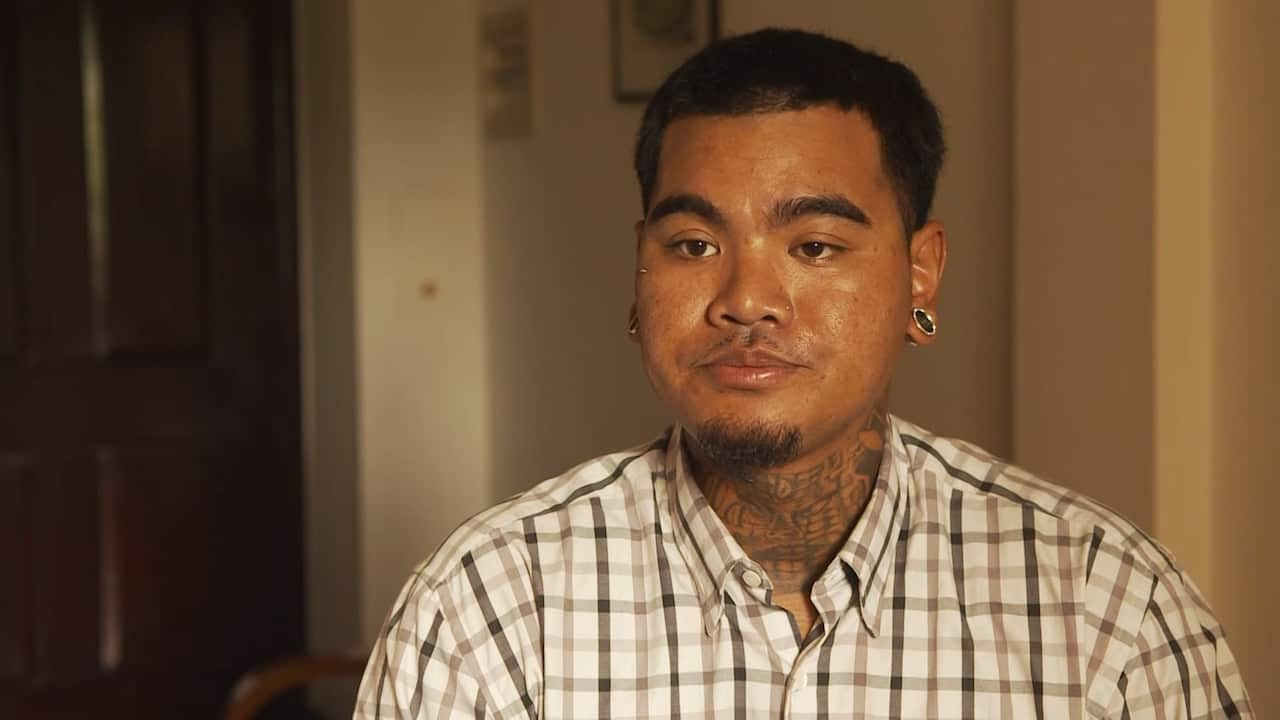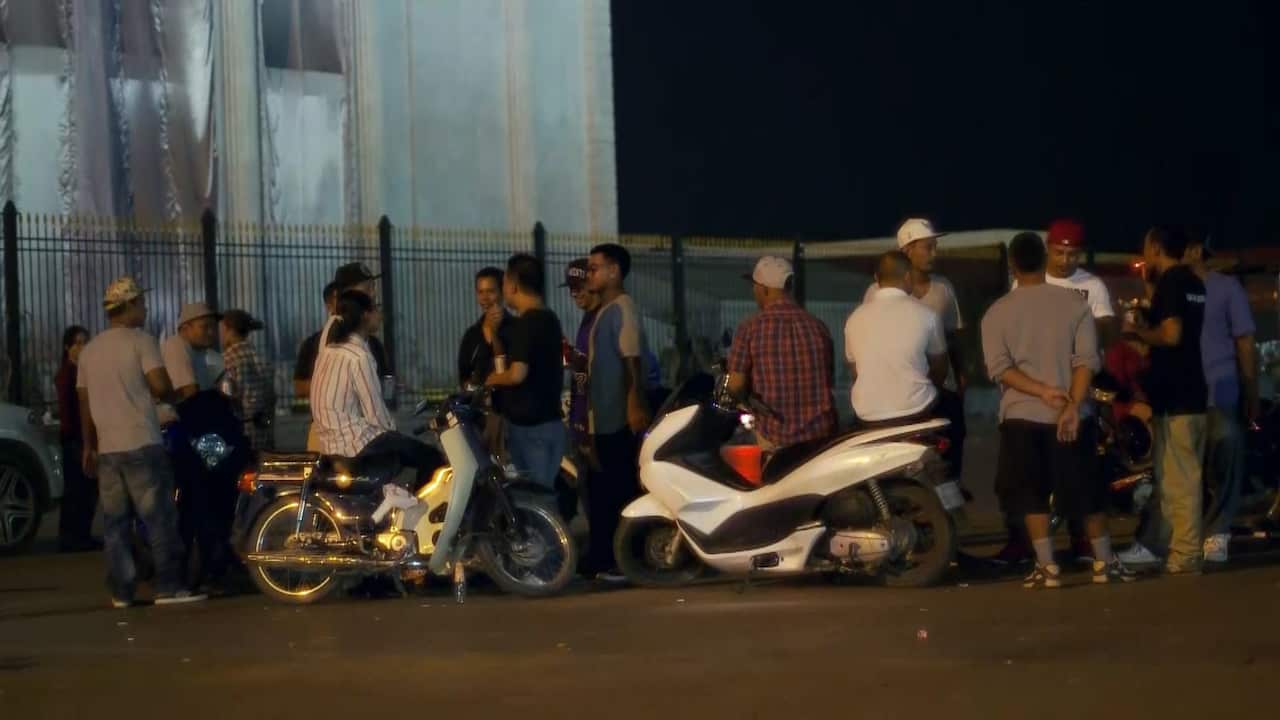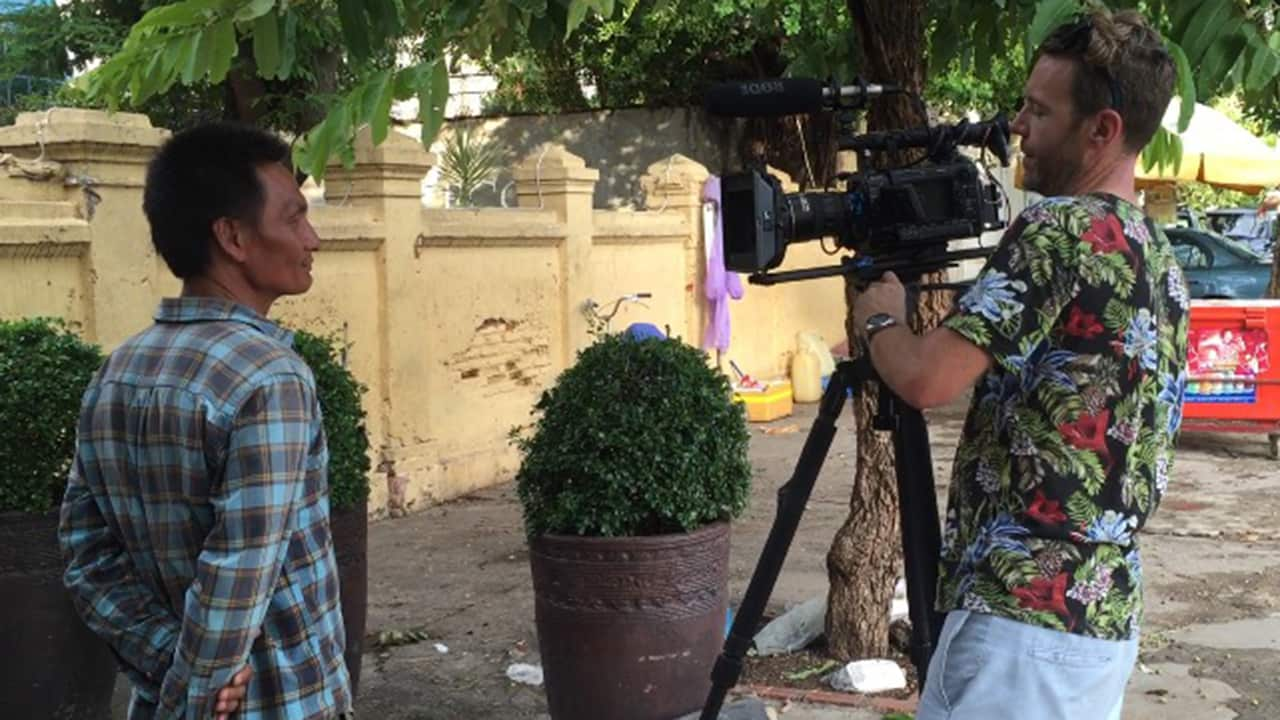The road from Pochentong Airport to central Phnom Penh is long, straight and dusty. The scooter-dominated traffic flows noisily and haphazardly.
I’ve just arrived, and I’m thinking that I’m lucky to be here by choice. The people I’m coming to meet are not.
The people I’m meeting feel like this is the end of the earth. Beyond foreign. A place so removed from their sphere of knowledge or interest, it’s verging on another planet.
My perspective: the familiar chaos of the road into town.
Their perspective: arriving in handcuffs. Shoved from the airport across the road to a government building, already stripped of the documents of the place they call ‘home’. And given no documents to legitimise them in this new place.
New deportees from the US are told not to bring more than a hundred dollars with them, because it’ll be taken in ‘bribes’ before they’re allowed to leave the Department of Immigration.
I’m here because around 500 Cambodian American residents have been deported already, and because almost 2,000 more live in limbo in the US.
Never sure when they’ll receive a knock on the door, be taken into custody, and kicked out of the country they’ve called home for decades. All are refugees from the civil war that rocked Cambodia in the 70s, but some have never been to Cambodia before.
Cambodia and the US signed an agreement in 2002 which started all this. It enacted a law passed in the US in 1996 which broadened the types of crimes which made permanent residents of the US eligible for deportation.
Now, you’re out if you commit a felony, three misdemeanors, or any crime for which the sentence is more than a year in prison. And the law is retroactive, meaning that even if you committed misdemeanors before the law existed you could still end up banished from the country you’ve called home for decades. In theory you could get deported for multiple counts of shoplifting. I first met a bunch of ‘Cambodia’s Home Boys’ on the streets of Phnom Penh 10 years ago. I was curious about them, these tattooed, swaggering dudes that seemed more LA-gang style than Cambodian. They cut controversial figures on the landscape.
I first met a bunch of ‘Cambodia’s Home Boys’ on the streets of Phnom Penh 10 years ago. I was curious about them, these tattooed, swaggering dudes that seemed more LA-gang style than Cambodian. They cut controversial figures on the landscape.

Khan Hin was deported from the US almost ten years after he'd served time for car thefts. Source: SBS Dateline
Local Cambodians didn’t want to know them, some expats feared them. The attitudes to these ‘returnees’ assumed that they were somehow in control of their situation. They were tough. So hard that they were kicked out of America. They must be super badass. I quickly found that the truth was these guys were displaced, a bit weirded out, and really missing their families.
It always stayed with me, this idea. The level of displacement and the forced cross-cultural confusion seemed out of proportion. This is a really really long way for someone to be sent. Especially someone who thinks they’re an American.
It’s not long before I meet the new wave of deportees. Guys (yes, they’re almost always guys) who weren’t alive when the Khmer Rouge ravaged Cambodia. Guys whose parents brought them to the US for a fresh start, and who were settled in some of the poorest and most violent parts of America.
Guys who had to grow up quickly and get tough in a tough environment. Guys who thought their immigration status was secure, and whose parents didn’t possess the language skills or education to realise they needed to get citizenship - that the term ‘permanent residency’ can be a misnomer. Most never knew they weren’t citizens.
The guys describe their lives here in Cambodia - and their stories are remarkably similar. They talk of isolation, unemployment, statelessness. Of brushes with the law in their teens and twenties, that they’re now paying for in their thirties and that will affect them for the rest of their lives. They realise they’re not blameless in this situation, but feel that they’re being punished twice - with jail terms, and then exile. The dark car park on the edge of town where they’ve chosen to gather and drink cheap local beer is a fitting setting for their situation. Neither properly Cambodian or American, they have no place.
They realise they’re not blameless in this situation, but feel that they’re being punished twice - with jail terms, and then exile. The dark car park on the edge of town where they’ve chosen to gather and drink cheap local beer is a fitting setting for their situation. Neither properly Cambodian or American, they have no place.

Deportees gather to share their frustrations and offer each other support. Source: SBS Dateline
I’ve since met with leaders of the Cambodian community in the US. They feel their community is unfairly targeted, and that the permanent exile of husbands, fathers, sons and daughters who have been rehabilitated is excessively harsh.
They’re trying to change things, but it’s an uphill battle. The US and Cambodian governments don’t seem to be listening, but recently the UN started to take an interest in the situation - recognising the claims that it’s unconstitutional to deport refugees.
I wanted to make a film that didn’t excuse these guys’ crimes, but pointed out the chasm between their actions and the punishment they’ve received. Their story is largely unheard. Their culturally-displaced community suffers from depression, drug addiction and suicide. But I always thought it was an American story. Imagine my surprise, a few days later when I get chatting to a guy in the street, named Hong. He had an unmistakable Australian twang to his accent.
But I always thought it was an American story. Imagine my surprise, a few days later when I get chatting to a guy in the street, named Hong. He had an unmistakable Australian twang to his accent.

Dean interviews Hong Ung, who was deported to Cambodia after 22 years in Australia. Source: SBS Dateline
So I asked him if he’d learned some of his English from Aussie mates. “Nah,” he said, “I’m an Aussie. I grew up in Sydney and lived there for 22 years.”
Everyone I spoke to denied that this was a possibility, but sure enough Hong is one of a few Cambodian Australian deportees in the same situation. Further investigation revealed that this has also happened to Cambodian French residents.
But as with many things, the US is king, and as things stand, there will be thousands more taking this long, confusing and lonely one-way trip.




